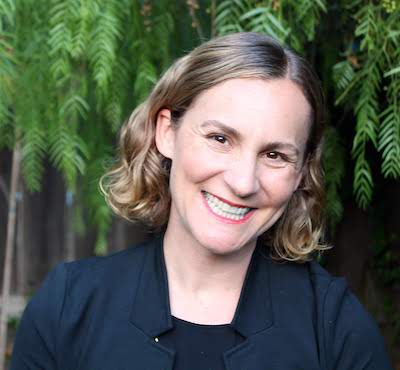Martine Lappe

Associate Professor
Contact Information
- Office: Bldg. 47, Rm. 12E
- Phone: 805-756-1761
- E-mail: mlapp@calpoly.edu
Fields
- Sociology of Health and Illness
- Medical Sociology
- Science and Technology Studies
- Body and Embodiment
- Gender, Race, and Class
- Feminist Theory
- Qualitative Research Methods
- Ethnography
- Reproduction
- Child Development
- Genetics and Epigenetics
- Public Health
- Autism Spectrum Disorder
About Martine Lappé, PhD
Dr. Martine Lappé is an Assistant Professor of Sociology and Science, Technology, and Society in the Department of Social Sciences at California Polytechnic State University, San Luis Obispo. She is a medical sociologist and feminist science and technology studies scholar. Dr. Lappé earned her PhD in sociology from the University of California, San Francisco and was a Postdoctoral Fellow at the University of California, Los Angeles Institute for Society and Genetics and Columbia University’s Center for Ethical, Legal, and Social Implications of Psychiatric, Neurological, and Behavioral Genetics, before joining the faculty at Cal Poly.
Dr. Lappé’s research focuses on lived experiences of health, science, and medicine. She is the Principal Investigator of a five-year Career Development Award (K99/R00) from the National Human Genome Research Institute (NHGRI)’s Ethical, Legal, and Social Implications (ELSI) Program. The study, titled “Behavioral Epigenetics in Children: Exploring the Social and Ethical Implications of Translation,” uses qualitative research methods and traditions in science studies and biomedical ethics to examine how epigenetic research is influencing understandings of child development and social policies related to pregnancy, parenting, and inequality in the United States (Grant Number R00HG009154). The grant is part of Dr. Lappé’s ongoing research on the consequences of genomic and epigenetic knowledge as it is produced and taken up across laboratories, clinics, and communities.
Dr. Lappé is also currently completing the book, Anticipating Autism: Science, Uncertainty, and Care in the Post-Genomic Era. The book explores the meanings of autism for families, scientists, and policy makers, and examines the impacts of autism science and activism on experiences of pregnancy and parenting today.
Dr. Lappé has taught courses on the sociology of health and illness, science and technology studies, gender and women’s studies, and qualitative research methods. Her scholarship is published in the journals Social Studies of Science, BioSocieties, New Genetics & Society, Pediatrics, Journal of Medical Ethics, and the books Advances in Medical Sociology: Genetics, Health and Society and Achieving Justice in Genomic Translation: Rethinking the Pathway to Benefit, among others.
Courses
- Advanced Project-Based Learning in Science, Technology and Society
- Sociology of Health, Risk, and Illness
- Laboratory Studies in Science and Technology Studies
- Qualitative Studies of Science and Medicine
- Gender and Science
Selected Publications
2018 Martine Lappé. “The Paradox of Care in Behavioral Epigenetics: Constructing
Early-Life Adversity in the Lab,” in Special Issue ‘Situating the Biosocial: Empirical Engagements with Environmental Epigenetics.’ BioSocieties. Online first: doi:10.1057/s41292-017-0090-z
2018 Martine Lappé, Lynette Lau, Rebecca N. Dudovitz, Bergen B. Nelson, Elizabeth A. Karp, and Alice A. Kuo. “The Diagnostic Odyssey of Autism Spectrum Disorder,” Pediatrics 141 (S4): S272-S279. doi:10.1542/peds.2016-4300C
2017 Elizabeth G. Cohn, Gail E. Henderson, and Paul S. Appelbaum for the Working Group
on Representation and Inclusion in Precision Medicine Studies (Martine Lappé, member). “Distributive Justice, Diversity, and Inclusion in Precision Medicine: What Will Success Look Like?” Genetics in Medicine, 19: 157-159: doi:10.1038/gim.2016.92
2016 Martine Lappé. “The Maternal Body as Environment in Autism Science” Social Studies of Science 46(5): 675-700. doi:10.1177/0306312716659372
2016 Martine Lappé. “Epigenetics, Media Coverage, and Parent Responsibilities in
the Post-Genomic Era,” Current Genetic Medicine Reports 4(3): 92-97. doi:10.1007/s40142-016-0092-3
2015 Martine Lappé and Hannah Landecker. “Sociology in an Age of Genomic Instability: Copy Number Variation, Somatic Mosaicism, and the Fallen Genome,” pp. 157-187 in Advances in Medical Sociology: Health, Genetics, and Society, Brea Perry (Ed). London, UK: Emerald.
- Winner of the 2016 Outstanding Author Contribution in the Emerald Literati Network Awards for Excellence
2015 Martine Lappé and Hannah Landecker. “How the Genome Got a Lifespan,” in Special Issue ‘Epigenetics and Society: Potential, Expectations, and Criticisms.’ New Genetics & Society, 32 (2): 152-176. doi: 10.1080/14636778.2015.1034851
2014 Martine Lappé. “Taking Care: Anticipation, Extraction, and the Politics of Temporality in Autism Science” in Special Issue ‘New Modes of Understanding and Acting on Human Difference in Autism Research, Advocacy and Care.’ BioSocieties, 9 (3): 304-328. doi:10.1057/biosoc.2014.14
2014 Gil Eyal, Des Fitzgerald, Eva Gillis-Buck, Brendan Hart, Martine Lappé, Daniel Navon and Sarah S. Richardson (authors in alphabetical order). “Introduction to the Special Issue: New Modes of Understanding and Acting on Human Difference in Autism Research, Advocacy and Care.” BioSocieties, 9 (3): 233-240. doi:10.1057/biosoc.2014.19
2014 Janet K. Shim, Katherine Weatherford Darling, Martine Lappé, L. Katherine Thomson, Sandra Soo-Jin Lee, Robert A. Hiatt, and Sara L Ackerman. “Homogeneity and Heterogeneity as Situational Properties: Producing – and Moving Beyond? – Race in Post-Genomic Science” Social Studies of Science, 44 (4): 579-599. doi: 10.1177/0306312714531522
2011 Holly K. Tabor and Martine Lappé. “The Autism Genetic Resource Exchange: Changing Pace, Priorities, and Roles in Discovery Science,” pp.56-71 in Achieving Justice in Genomic Translation: Rethinking the Pathway to Benefit. Burke W., Edwards K., Goering S., Holland S., Trinidad S. (Eds.) New York: Oxford University Press.
2009 Jennifer Ladd, Martine Lappé, Angie Boyce, and Jennifer McCormick. “The
‘How’ and ‘Why’ of Research: Life Scientists' Views of Accountability.” Journal of Medical Ethics, 35 (12): 762-7. doi: 10.1136/jme.2009.031781